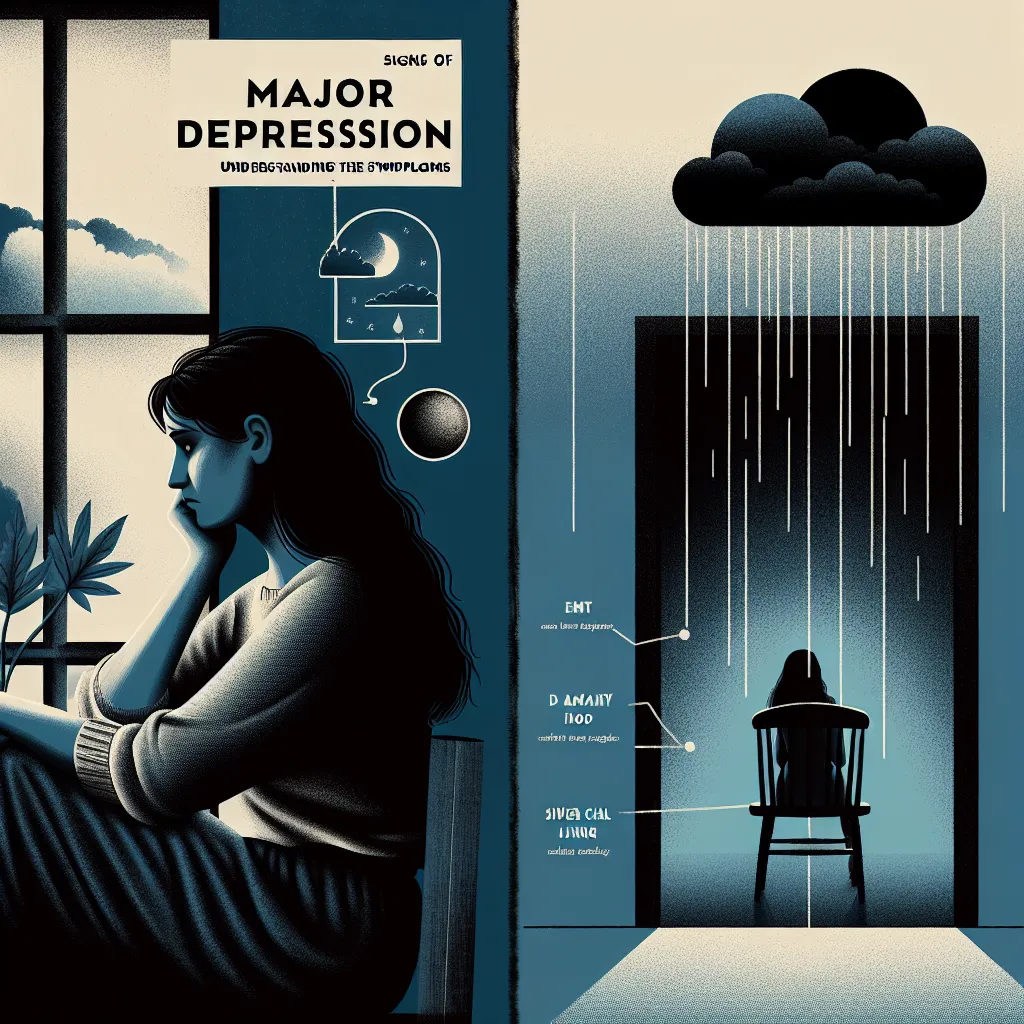Signs of Major Depression: Understanding the Symptoms
Signs of Major Depression: Understanding the Symptoms
Introduction
Depression is a complex mental health condition that affects millions of people around the world. While everyone experiences occasional feelings of sadness or low mood, major depression goes beyond normal emotional responses and can significantly impact a person’s daily life. Recognizing the signs of major depression is crucial for early intervention and seeking appropriate support and treatment. In this article, we will explore the various symptoms and warning signs associated with major depression.
1. Persistent Sadness or Low Mood
One of the primary indicators of major depression is experiencing persistent sadness or a low mood that lasts for an extended period. Individuals with major depression often feel an overwhelming sense of sadness, emptiness, or hopelessness that persists for weeks, months, or even longer.
2. Loss of Interest or Pleasure
A notable sign of major depression is the loss of interest or pleasure in activities that were once enjoyable. Hobbies, socializing, or even spending time with loved ones may no longer bring any joy or satisfaction. This loss of interest can further exacerbate feelings of sadness and isolation.
3. Significant Changes in Appetite or Weight
Major depression can often lead to noticeable changes in appetite or weight. Some individuals may experience a significant increase in appetite, resulting in weight gain, while others may have a decreased appetite leading to weight loss. These changes are not related to intentional dieting or lifestyle modifications.
4. Sleep Disturbances
Insomnia or excessive sleeping are common symptoms associated with major depression. Some individuals may struggle to fall asleep, experience restless nights, or wake up earlier than usual. On the other hand, some individuals may find it challenging to get out of bed, feeling fatigued even after a prolonged period of sleep.
5. Lack of Energy or Fatigue
People with major depression often report feeling constantly fatigued or lacking energy, regardless of how much rest they get. Simple tasks that were once effortless may become overwhelming and exhausting. This persistent fatigue can have a significant impact on an individual’s ability to function in their daily life.
6. Feelings of Worthlessness or Guilt
Individuals with major depression may experience an intense sense of worthlessness or excessive guilt. They may excessively blame themselves for perceived failures or shortcomings, even when there is no logical basis for such self-criticism. These feelings can further contribute to a negative self-image and perpetuate the cycle of depression.
7. Difficulty Concentrating or Making Decisions
Major depression often affects cognitive functioning, leading to difficulties in concentration, memory, and decision-making. Individuals may find it challenging to focus on tasks, retain information, or make even simple choices. This cognitive impairment can interfere with work, school, or personal relationships.
8. Thoughts of Death or Suicide
Thoughts of death, dying, or suicide are serious warning signs of major depression. Individuals experiencing major depression may have recurrent thoughts of self-harm or suicide. It is crucial to take these thoughts seriously and seek immediate professional help or contact a helpline in such instances.

9. Physical Symptoms
In addition to emotional and cognitive symptoms, major depression can also manifest in physical symptoms. These may include unexplained headaches, digestive problems, muscle aches, or chronic pain. It is important to note that these symptoms are not solely caused by physical illness and may be linked to underlying depression.
10. Social Withdrawal
Individuals with major depression often experience a strong desire to withdraw from social activities, preferring isolation over social interaction. They may avoid friends, family gatherings, or social events, feeling detached or disconnected from others. This social withdrawal can further deepen feelings of loneliness and exacerbate depressive symptoms.
Conclusion
Major depression is a serious mental health condition that requires proper diagnosis and treatment. Recognizing the signs and symptoms of major depression is crucial for early intervention and seeking appropriate support. If you or someone you know is experiencing any of the mentioned symptoms, it is essential to consult a healthcare professional or mental health provider for a comprehensive evaluation and guidance. Remember, there is help available, and recovery is possible.
